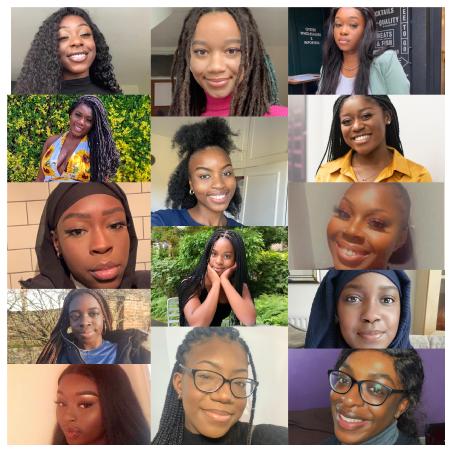Warwick student sets up the Black Mind Initiative
The Black Mind Initiative aims to reform the current mental health system nationally, by encouraging young Black people to take up a degree related to the mental health profession, the initiative will then support them in their studies and encourage them to work in senior roles in mental healthcare.
After Kelechi Matthias, a Psychology student at the University of Warwick from South London received counselling from a culturally incompetent counsellor, which was remedied by a counsellor from a culture similar to her, who made her feel listened to, understood and seen, she decided to take her own action, and founded the Black Mind Initiative.
The initiative is a non-profit organisation, which aims to provide the tools for the next generation of mental health professionals, so they can break the cycle of systematic racism within the mental health service.
Research into how many Black counsellors or mental health professionals is incredibly limited, however when it comes to BAME counsellors there is some research, which has found that only 1 in 14 counsellors currently coming from a BAME background, how many of those represent the Black community is unknown.
This shows that the representation of the Black community in mental healthcare is considerably low. In fact in leadership roles such as clinical psychiatrists, psychologists and consultants there is a very low representation.
The British Psychological Society have highlighted the need to prioritise the advancement of BAME professionals, and advancement that will help tackle the negative experiences of service users, and hoping to encourage more people from a BAME background to take up psychology is the Black Mind Initiative.
The initiative has four aims:
1. Educate communities on structural racism within mental health healthcare and the impact it has on Black mental health.
2. Encourage young people into the mental health profession, so the next generation is aware of the needs of the Black community.
3. Equip young people with the necessary tool and skills for the mental health profession. Connecting them with current Black mental health professionals for advice and guidance.
4. Engage in conversations about systematic racism in mental healthcare with local council and lobby for detailed cultural competency training for current mental health professionals.
Kelechi Matthias, founder of the Black Mind Initiative and Psychology student at the University of Warwick comments:
“After my experience with counselling and not feeling represented I decided to take action, and founded the Black Mind Initiative I’m running with other Black students.
“The initiative will offer Black students the opportunity to consider a career in the mental healthcare profession, by offering them interactive sessions in schools, colleges and universities with Black professionals who can tell them about their journey, and offer tips to help them.
“We also want to provide a personal statement service, and connect them with someone who can help them such as a psychologist, nurse or neuroscientist, which leads me onto networking events between current professionals and the next generation of them.
“Ultimately for those who do decide to pursue a career in the mental healthcare profession they can have a mentor, as we can match their interests and research areas with those of a Black mental health professional, which could help them with work experience, advice and guidance.
“Our first step towards this is our new peer mentorship scheme, which is launching this week to encourage networking and peer learning between current students.”
Faatimah Barrie, also a Psychology student at Warwick who is involved in the initiative adds:
“2020 was the year many people opened their eyes to the Black Lives Matter movement, we saw people share black squares on their social media channels and promising to do their best to learn and educate themselves. We hope that now, in 2021 not only will the awareness continue but also a more holistic understanding of systemic racism that also permeates the health sector and recognise the need for Black students to take up space within the field.”
Supporting the students and their initiative is Professor Sotaro Kita, from the Department of Psychology at the University of Warwick, he comments:
“This is an outstanding initiative, and is just what the society and the field of psychology need now. Having been in the psychology profession for 25 years I have seen first-hand how our knowledge about human mind is based on skewed information.
“It is based on studies conducted with participants from a small section of the world, majority white participants in Western Europe and North America. In this globalised world, and in this multi-cultural Britain, the conventional psychological knowledge and practice are showing its limitations. We need more diverse perspectives. This initiative will contribute to solving this problem in the area of mental health.
“I hope that their initiative will help shape the future of psychology, and that we will see more ethnic diversity among mental health professionals and researcher.”

